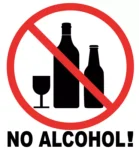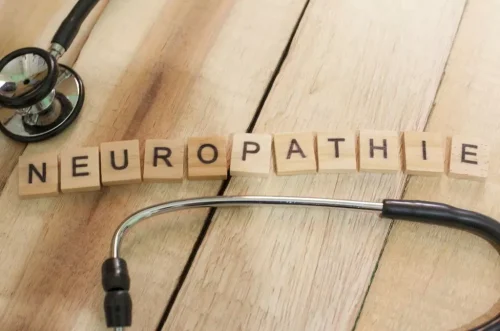
The best thing to do at that point is to seek out individual therapy for yourself and work on setting firmer boundaries. They will con a way to buy alcohol, drink in secret, and find a way to cover their drinking. For narcissists, manipulation is a way to use someone to get the reactions or attention they desire.
Seeking help
This can lead to manipulative and controlling behaviors, as well as emotional and psychological abuse. Chronic alcohol misuse changes neurotransmitters in the brain and affects how the body responds to alcohol. According to BioScience Trends, “Alcoholism is a global socially significant problem and still remains one of the leading causes of disability and premature death. The risk factors, symptoms, and side effects of NPD and AUD are interlinked and feed off one another.
Social and Public Health Perspectives on Alcoholic Narcissism
Narcissistic personality disorder (NPD) and alcohol use disorder (AUD) share unique risk factors and often overlap with other conditions. Pathways Recovery Center uses evidence-based treatments to help clients with narcissism and alcoholism. Several therapeutic approaches may help manage personality disorders and address addiction. Psychotherapy, a popular treatment for narcissistic personality disorder, can be beneficial in improving empathy and building healthy relationships. To tackle alcohol use disorders, Cognitive Behavioral Therapy (CBT) can be quite effective in learning to identify triggers and cope with cravings.

Treatment options

With NPD, for example, there are no drugs specifically used for the treatment of the personality disorder, but antidepressants or anxiolytics may be prescribed if depression or anxiety is present. The treatment https://ecosoberhouse.com/ of NPD and AUD should ideally be delivered simultaneously, especially if there is severe addiction or depression. With that said, there are challenges to delivering appropriate care for the dual diagnosis.
Toxic Dynamics in Relationships with Alcoholic Narcissists
- Therapy, a strong support system, and self-care strategies can help you make a full recovery.
- You can take steps to prevent relapse, such as recognizing your triggers and joining a support group.
- Alcohol addiction may serve as a coping mechanism or defense against feelings of guilt, inadequacy, and low self-esteem.
- You’ve joined your colleagues for a drink after work, and as the night progresses, your narcissistic boss’s behavior becomes increasingly intolerable.
They may make excuses for the alcoholic’s actions, cover up their mistakes, or enable their substance abuse by providing financial support or covering up the consequences of their drinking. When exploring the connection between alcoholism and narcissism, it is crucial to understand the cyclical relationship that exists between these two conditions. Alcoholism can serve as a coping mechanism for individuals struggling with underlying narcissistic tendencies, and at the same time, alcohol can reinforce and exacerbate narcissistic behavior. In the legends, Narcissus, the son of a god, fell in love with his own reflection and died pining for the “perfection” he saw within that reflection.
Types of Narcissism
People with narcissistic personality disorders may wish to control their sexual partner’s behavior for their own satisfaction, and they may have an inflated sense of sexual entitlement. A 2020 review of research on narcissism and substance use disorders concludes that low self-esteem that requires external validation from others can increase the risk of substance use narcissism and alcoholism disorders. Narcissism is a personality disorder that shares many common traits with addiction. There are two types of narcissism, both of which may lead to tendencies in people that can, in turn, encourage addictive behaviors. Some may have high self-esteem and a healthy sense of self-worth, while others may exhibit extreme narcissism and a lack of empathy for others.

This might involve attending support groups for families of addicts or seeking individual therapy. It’s important to remember that you can’t control the narcissist’s behavior, but you can control your response to it. It’s like learning to dance in a storm – you can’t stop the rain, but you can learn to move with it rather than against it.
AUD Prognosis
It’s worth noting that the DSM-5-TR doesn’t use the term “alcoholism,” but the term is still used colloquially to refer to AUD. It’s increasingly common for someone to be diagnosed with a condition such as ADHD or autism as an adult. A diagnosis often brings relief, but it can also come with as many questions as answers. Alternatively, you can access support symptoms for each condition separately. You can survive the experience by applying the techniques listed above, but at some point, you will have to bring up the subject of treatment. If the situation becomes physically or emotionally unsafe, prioritize your safety.
While there is room for interpretation, a person with NPD and/or AUD must meet a minimum standard before a diagnosis can be delivered with confidence. Personality disorders like NPD are those in which a person has a rigid and unhealthy pattern of thinking, functioning, and behaving. Substance abuse disorders like AUD are characterized by mental and physical addiction. Alcohol use disorder is a type of substance abuse disorder where a person cannot control or stop their alcohol use. As we’ve explored the intricate dance between narcissism and addiction, it becomes clear that this is a complex issue with no easy solutions.
Overlapping tools for diagnosis

Contact friends, family, or support groups to share your experiences and feelings. Engaging in arguments with an alcoholic narcissist can be futile and emotionally draining. A dry drunk has stopped drinking but hasn’t yet dealt with the issues that caused their alcohol dependence. They have yet to confront the shame, guilt, or past trauma that drew them to alcohol in the first place, so are at risk of relapsing.